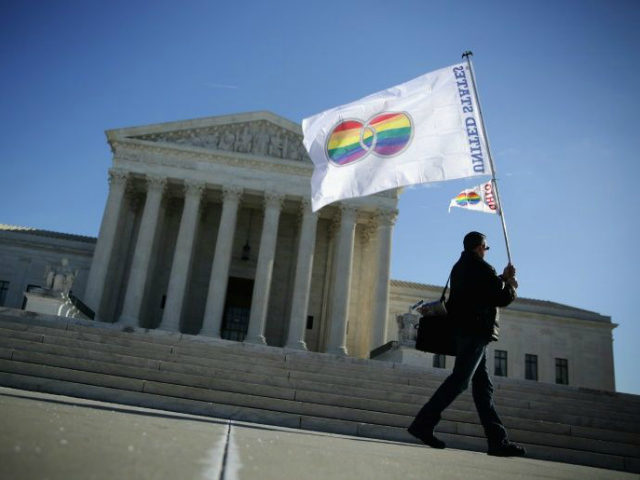The U.S. Court of Appeals for the Second Circuit ruled on Monday that it violates a federal sex-discrimination law if an employer discriminates against an employee based on sexual orientation, while dissenting judges in the case wrote that only Congress, not the courts, has the authority to change federal law. But the Justice Department disagrees, and this case could be the first to present this LGBT issue to the U.S. Supreme Court.
Donald Zarda was a gay man who worked as a sky-diving instructor, conducting tandem skydives where he was in full-body contact with another person. In 2010, his employer terminated him. He claimed that it was due to his sexual orientation.
He filed a complaint with the federal Equal Employment Opportunity Commission (EEOC), which his lawyers in this appeal claim was an EEOC complaint alleging that he was discriminated against, both because of his gender and his sexual orientation, in violation of Title VII.
The lower courts ruled against him because Title VII does not mention sexual orientation. Democrats have tried for years to pass legislation like the Employment Non-Discrimination Act (ENDA) to add sexual orientation and gender identity to categories of prohibited discrimination, but those bills have never passed.
Congress passed the Civil Rights Act in 1964, including Title VII. It prohibits employers from hiring, firing, or making other employment decisions that discriminate based on an “individual’s race, color, religion, sex, or national origin.” The Supreme Court later held this was Congress’s “simple but momentous announcement that sex, race, religion, and national origin are not relevant to the selection, evaluation, or compensation of employees.”
In a rare en banc rehearing, the full Second Circuit voted 10-3 on Monday that this 50-year federal law already covers sexual orientation.
“We now conclude that sexual orientation discrimination is motivated, at least in part, by sex and is a subset of sex discrimination,” Chief Judge Robert Katzman wrote for the majority. Consequently, “we now hold that Title VII prohibits discrimination on the basis of sexual orientation as discrimination because of sex” and that all Second Circuits to the contrary are overruled.
The majority of the New York City-based court explained that it was making this change because “legal doctrine evolves.”
One court brief filed in this case argued that this is not sex discrimination because it was “I fired him because he is gay” instead of “I fired him because he is a man.” The Second Circuit dismissed such a distinction as a “semantic sleight of hand.”
The dissenting judges each made clear that they support the LGBT agenda but that the Second Circuit majority opinion was not properly interpreting Title VII.
“Speaking solely as a citizen, I would be delighted to awake one morning to learn that Congress had just passed legislation adding sexual orientation to the list of grounds of employment discrimination prohibited under Title VII,” Judge Gerard Lynch wrote, “or that Congress had secretly passed such legislation more than a half century ago.” However, “we all know that Congress did no such thing.”
“When interpreting an Act of Congress, we need to respect the choices made by Congress about which social problems to address, and how to address them,” Lynch added.
Judge Debra Livingston dissented on similar grounds. “The majority’s effort founder on the simple question of how a reasonable reader, competent in the language and its use, would have understood Title VII’s text when it was written – on the question of its public meaning at the time of enactment,” she wrote.
The U.S. Department of Justice filed a brief in this case arguing that Title VII does not cover LGBT issues.
“We believe we’re on the right principle here,” Attorney General Jeff Sessions told a group of state attorneys general on Monday. “I guess maybe the judges woke up that morning, read the New York Times or something, and decided their previous ruling was wrong.”
The appellate court’s decision was no surprise because the Second Circuit is a left-leaning court. But this issue may now be ready for Supreme Court review, where its fate would be less certain.
There are also technical arguments as to why the appeals court lacked jurisdiction to decide this particular claim. If the justices do not consider those arguments problematic, this could be a major national case on the scope of the Civil Rights Act of 1964.
The case is Zarda v. Altitude Express, No. 15-3775, at the U.S. Court of Appeals for the Second Circuit.
Ken Klukowski is senior legal editor for Breitbart News. Follow him on Twitter @kenklukowski.

COMMENTS
Please let us know if you're having issues with commenting.